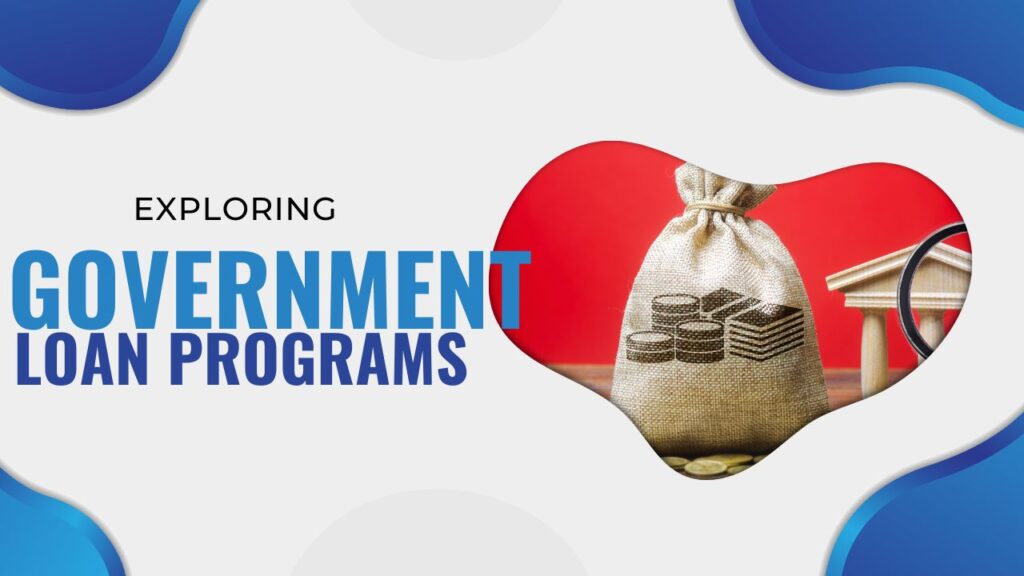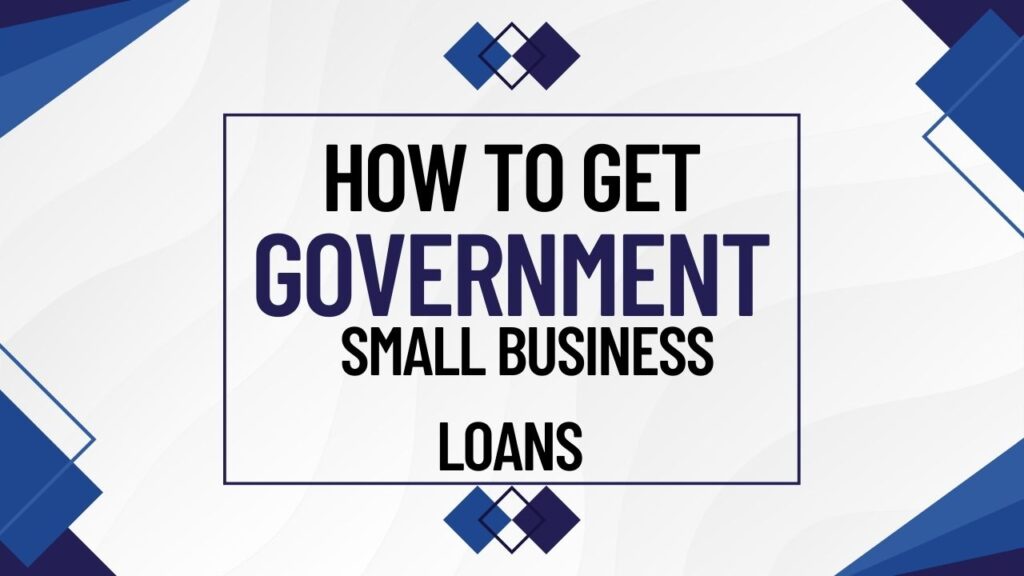
Starting a business is a joyful journey filled with endless possibilities. You have a unique vision, a passion that drives you, and the ambition to transform your innovative ideas into a thriving reality.
However, the path from conception to establishment often encounters a common hurdle: financing.
That’s where the government can step in as a valuable partner, offering various loan programs designed to empower aspiring entrepreneurs like you.
In this blog post, we will delve into the realm of government loans and uncover the secrets to accessing this potent source of capital.
Whether you’re a budding entrepreneur looking to launch a groundbreaking tech startup or a passionate artisan eager to turn your creative talents into a small business venture, the government might just hold the key to your success.
Join us as we demystify the process and equip you with the knowledge to navigate the intricate world of government loans.
From understanding the types of loans available to unraveling the eligibility criteria and sharing success stories of those who have paved the way, we’ll cover everything you need to know to embark on your entrepreneurial journey with confidence.
Table of Contents
Exploring Government Loan Programs

Government loans offer a valuable lifeline for entrepreneurs seeking financial support to kickstart their business ventures.
These loans are designed to provide capital, often at favorable terms, empowering individuals with the means to transform their ideas into profitable enterprises.
Let’s delve into the various government loan programs available to aspiring business owners:
1. Small Business Administration (SBA) Loans:
The Small Business Administration, a U.S. government agency, offers a range of loan programs tailored to meet the needs of small businesses.
These loans, facilitated through partnering financial institutions, provide capital for everything from startup costs to working capital, equipment purchases, and even commercial real estate.
SBA loans typically feature competitive interest rates and longer repayment terms, making them an attractive option for many entrepreneurs.
2. Grants and Subsidies:
In addition to loans, government entities often offer grants and subsidies as part of their efforts to promote economic growth and foster entrepreneurship.
Unlike loans, grants do not require repayment and can provide a significant boost to your business’s financial foundation.
It’s worth exploring grant opportunities specific to your industry, locality, or demographic to maximize your chances of securing additional funding.
How To Get Government Small Business Loans

While government loans can be a game-changer for aspiring business owners, successfully navigating the loan process requires thorough preparation and strategic execution. Here are some essential steps to enhance your chances of securing a government loan:
1. Develop a Solid Business Plan:
A well-crafted business plan serves as the foundation for your loan application. It outlines your vision, market analysis, financial projections, and strategies for growth. This document showcases your dedication, professionalism, and preparedness, enhancing your credibility in the eyes of lenders.
2. Research Eligibility and Requirements:
Different loan programs have varying eligibility criteria and documentation requirements. Conduct thorough research to understand which loans align with your business’s needs and ensure you meet the necessary prerequisites. Understanding the fine print will help you avoid unnecessary delays or rejections during the application process.
3. Seek Professional Guidance:
Assembling a team of experts, including accountants, attorneys, or business advisors, can significantly enhance your loan application. These professionals offer valuable insights, help you navigate complex paperwork, and ensure your financial statements and supporting documents are in order.
Documents Required to Apply for Government Loan for Business

Here are some common documents often requested during the application process:
- Business Plan:
- Personal and Business Financial Statements:
- Tax Returns
- Legal Documents: (such as business licenses, permits, registrations, articles of incorporation, partnership agreements, and contracts.)
- Collateral Documentation
- Bank Statements
- Credit Reports
- Industry-Specific Documents: (For example, if you’re in the food service industry, you may need health department permits or certifications).
- Personal Identification Documents
Success Stories: Realizing Entrepreneurial Dreams

To inspire and motivate aspiring entrepreneurs, let’s explore a few success stories of individuals who harnessed government loans to turn their business dreams into reality:
- Daryl Thomas, born with cerebral palsy, defied the odds to excel academically and pursue a career in accounting. Despite initial challenges in finding employment, Daryl started his own accounting and income tax business, which eventually grew into Thomas Accounting and Income Tax Services. Facing setbacks from the pandemic and a destructive tornado, Daryl managed to keep his business afloat with the help of the SBA’s COVID-19 Economic Injury Disaster Loan. His community involvement and dedication to serving others earned him the prestigious title of the 2023 Alabama Small Business Person of the Year. Despite physical limitations, Daryl’s remarkable accomplishments showcase his unwavering determination and serve as an inspiring example of perseverance in both life and business.
- David Dafoe, the Founder, and CEO of Flavorman and Moonshine University, has been named the 2023 SBA Kentucky Small Business Person of the Year. He started as a Chemical Technician and Beverage Alcohol Applications Specialist before launching Flavorman, a custom beverage development company, from his condominium kitchen in 1992. Over the years, Flavorman has experienced significant expansion and utilized SBA loans for financing. They have collaborated with renowned brands and created over 89,000 unique beverage formulations. Despite challenges, including the impact of the COVID-19 pandemic, Flavorman currently employs 66 team members, with 38 new hires added after the pandemic. Dafoe’s entrepreneurial journey and Flavorman’s success showcase their growth, innovation, and contributions to the beverage industry.
KEY RESOURCES:
- How much does it Cost to Start a Business?
- How to Get a Loan to Start a Business in 11 Steps
- How to Start a Small Business at Home
- How to Start a Business with No Money
- How to Start a Business Online in 11 Easy Steps
- How to Start a Small Business: From Idea to Reality
Conclusion:
Government loans serve as a powerful catalyst for entrepreneurial success, offering aspiring business owners the financial support they need to transform their dreams into thriving ventures.
By exploring the various loan programs available, understanding the loan application process, and drawing inspiration from real success stories, you can embark on your entrepreneurial journey with confidence.
Remember, securing a government loan requires careful planning, meticulous preparation, and perseverance.
With the right mindset, a solid business plan, and professional guidance, you can unlock the door to financial opportunities and set your business on the path to success. So, don’t let financing be a roadblock to your entrepreneurial aspirations
And that’s all in this article; “How to Get a Loan to Start a Business from the Government”
Remember to turn on the Bell 🔔 Notification icon to get updated on your device when new articles are published.
Discover more from StartBizEasy
Subscribe to get the latest posts to your email.





